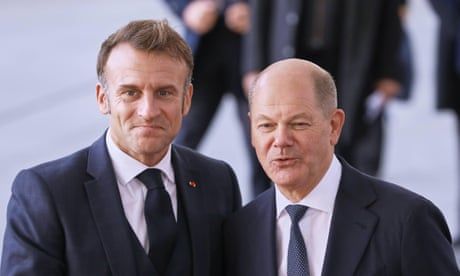
The European Union’s two most powerful member states are plunged into introspection, as Donald Trump prepares to enter the White House
After a brief weekend hiatus, action has resumed in the real-life political boxsets playing out in the EU’s two most important capitals. In the Bundestag on Monday, a vote of no confidence in Chancellor Olaf Scholz’s battered coalition government duly paved the way for a snap election in February. Over in Paris – where the same manoeuvre collapsed Michel Barnier’s short-lived government a fortnight ago – his prime ministerial replacement was putting his feet under the desk after being appointed on Friday by an increasingly desperate Emmanuel Macron.
As Europe faces big decisions and dilemmas over Ukraine, how to deal with Donald Trump, and the challenge of China, this is no time for the continent’s fabled Franco-German engine to temporarily conk out. But there are no easy fixes in view on either side of the Rhine. In both France and Germany, the rise of the far right and a concomitant crisis of trust in mainstream politics have pointed to a deep political malaise for some time.
Continue reading...